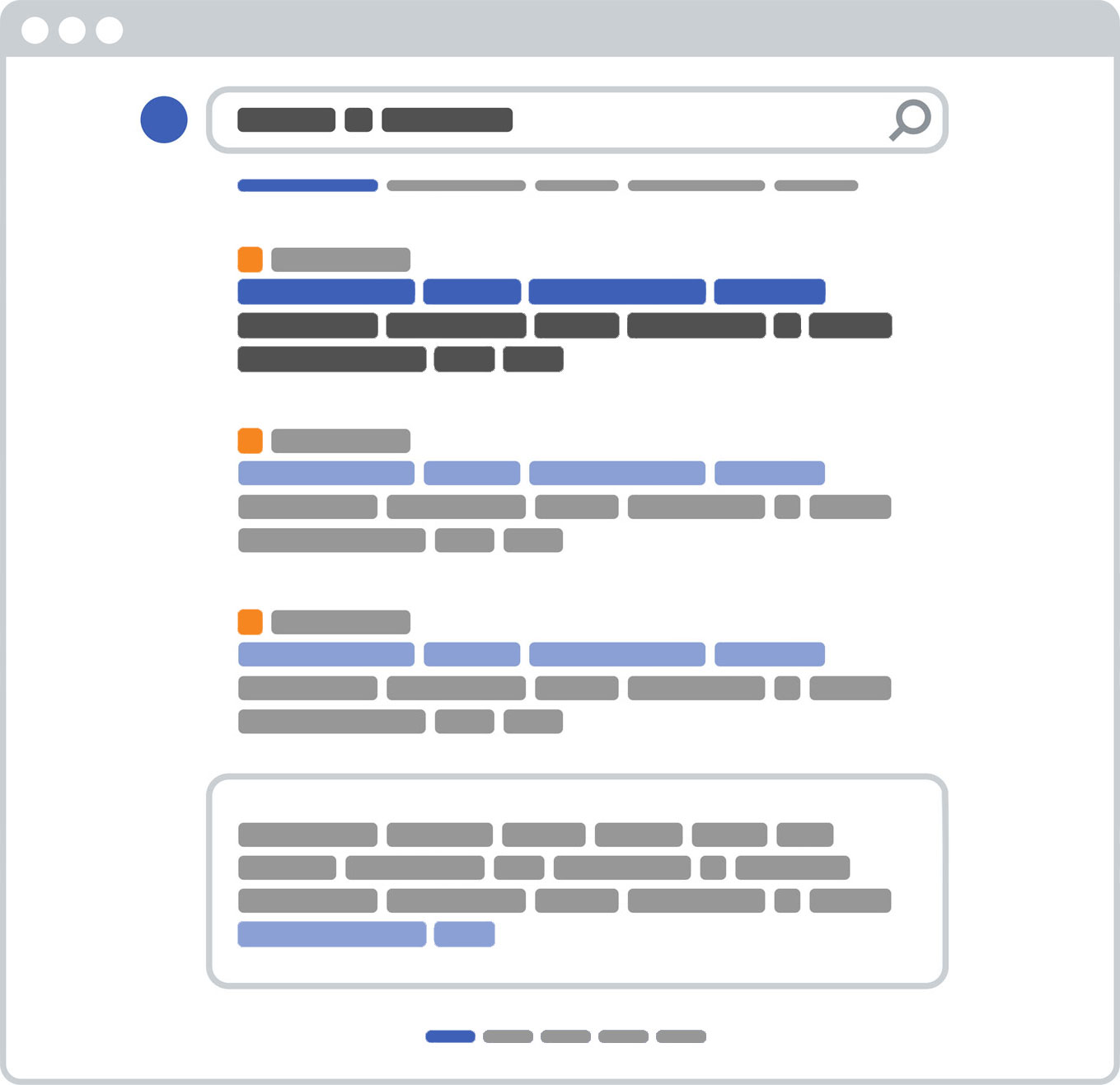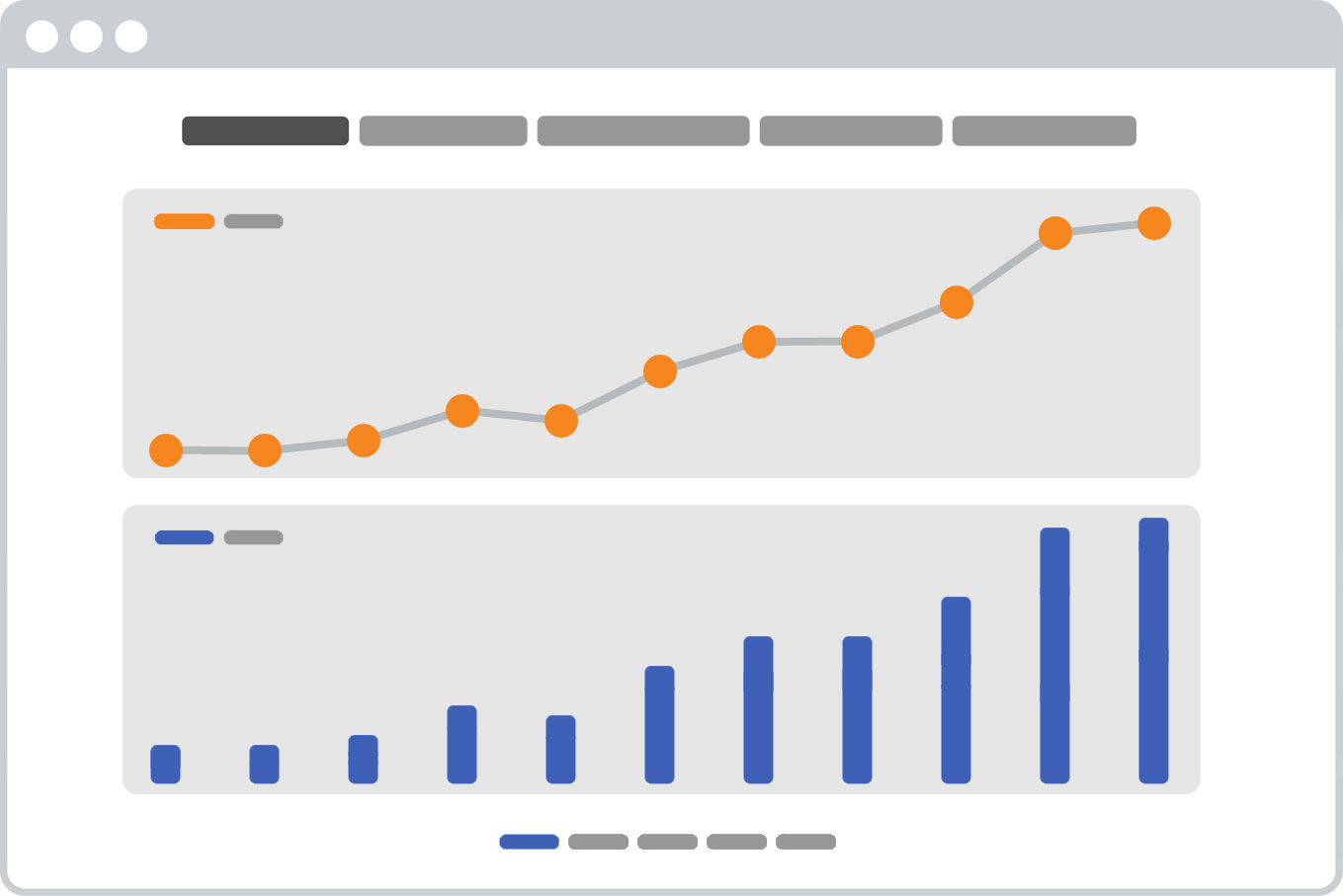Website SEO in Chepstow
Increase your search engine ranking and get more visitors with our organic website SEO service.

Are people finding your website?
Is your website appearing high in the search results?
Organic SEO can help you get the visibility you need to reach your target audience.
We can help you get more organic traffic to your website, which means more leads and sales.
What is organic website SEO?
Organic website SEO is the practice of optimising a website to improve its visibility in search engine results through the use of unpaid methods.

This includes optimising both on-page and off-page elements, building relationships with other websites, engaging in social media marketing and developing optimised content that is relevant to the target audience.
These tactics are used to attract more search engine users looking for your specific information and services.
Why the need to rank higher?
Quite simply the higher a website ranks in search engine results pages (SERPs), the more traffic it will receive.
This increased traffic can lead to more customers, more sales and higher profits.

Ranking higher in search engines can also help to establish a website as an authority in its respective industry, leading to increased trust and credibility.
How we can help you rank.
We can create and execute a tailored SEO strategy to improve your website’s visibility.
This will involve improving your website’s ranking in search engine results pages, optimising your website for relevant keywords, creating content that is relevant to your target audience, and building backlinks from relevant websites.
We can also provide ongoing support to ensure that your website is optimised for maximum organic growth.
If you would like a chat and some free SEO advice then please get in touch, or read on to know a little more about the process.
On-page SEO.
This is the process of optimising elements on your website with a view to ranking higher in the search engines.
Search engines like Google use these elements to determine whether your website is a good match to a user's search intent.
There are dozens of possible optimisations to be made... here are just a few:
- Keyword analysis - Are you targeting the right keywords? Analysing user search intent, keyword difficulties and traffic numbers will ensure your content focuses on the right terms.
- Meta titles and descriptions - Key to providing both Google and the user the content they are looking for. Important for both SEO and click-through-rate.
- Heading structure - From H1s to H3s your heading structure needs to be organised and contain relevant keywords to compliment your content.
- Internal linking - Crucial to boosting the relevance of key pages. The right internal links to selective pages can give them a huge boost.
- Site structure - A simple site structure arranged into optimised silos is hugely beneficial for both the user experience and indexing/spidering.
- Authority - Does your website convince both the user and Google that you are an authority in your chosen niche? There are many ways to convey this.
- Schema Markup - a semantic vocabulary hidden in your website code to help search engines understand exactly what your website is about. Often overlooked but well worth implementing.
Technical SEO.
Behind the scenes technical SEO plays a huge role in an overall strategy. Though not as glamourous as on-page elements that are visible it can be the difference between outranking your competition.
There are several technical SEO elements that need to be implemented for a perfectly optimised website, including:
- Status code errors - We can check if your website is producing any errors (highlighted by status codes) and fix them, so it runs perfectly.
- Canonicals - Getting these wrong is a simple way to remove your website from the search engines. Tell search engines which pages are the most important using canonicals.
- Indexing and sitemaps - A well-structured sitemap will tell search engines what pages make up your website and enable your site to be indexed (added to the listings) more easily.
- SEO-friendly URLs - Ugly or non-optimised URLs will hurt your SEO performance. It's any easy way to tell search engines what your page is about and cen help you rank.
Mobile friendliness.
Google prioritises mobile-first indexing and most searches are performed on a smartphone or tablet.
It is crucial that your website performs flawlessly on all mobile devices. It will rank higher and convert better once fully optimised.
- Mobile friendly testing - We run your website through Google's own mobile friendly test and analyse the results to determine what needs to be done.
- Mobile Page Speed test - If visitors are using mobile data to view your website, it needs to load quickly. Slow websites lose rank and attention.
- Responsive design - Not all smartphones/tablets are the same. Your site needs to adapt to every resolution to consistently look professional.
- Above-the-fold - Are your most important message and contact details visible the moment you page loads? If not, it will affect your mobile conversions.
- Navigation - Clear navigation to all your main pages is crucial on mobile devices. Your visitors should be able to reach the information they are searching for as easily as possible.
Site speed.
There are two very clear reasons why you should speed up your website:
- Search engines reward fast websites.
- Visitors leave slow websites.
It can be a complicated process, but fully optimising your website for speed has tremendous SEO benefits. Some of the elements we consider are:
- Site speed testing - It's important to run some tests on the website to get a clear picture of what needs attention, and to set a benchmark to improve upon.
- Image compression - Reducing the file size of images used throughout the site using compression software is a quick way to reduce load times and can make a big difference.
- Lazy loading / deferring - There's little point in loading elements such as pictures or scripts that aren't on screen until you scroll down. Lazy loading only loads elements when they're needed which creates a quicker initial load time.
- LCP, FID and TTFB - All indications of where the bottlenecks in your site loading are. It gives a clear indication of server performance and site loading hierarchy.
- Cache - It may be necessary to cache your website if it is performing poorly. This is essentially creating an optimised snapshot of the page and displaying this to your visitors.
- Hosting - Depending on the quality and location of the server that is hosting your website, there may be further improvements to be made to the speed of delivery.
Accessibility.
Creating a website that is accessible to all is another important SEO factor that is often overlooked.
Search engines like an accessible website and so do visitors, so it's a must on our organic SEO service list.
- Accessibility audit - By running your site through Google's own accessibility audit we gather a clear picture of any improvements that need to be made.
- Contrast - Your design may not lend itself to those who struggle with contrast. For instance, if you're using dark text on a dark background there will be an issue.
- Names and labels - Correctly naming labelling all elements of your web pages will improve the experience for users of screen readers.
- Navigation - Can users tab through your navigation? Are your internal links visible and large enough to be clicked easily? All simple fixes that can make a big difference to some users.
- Progressive Web Apps - Making your website look and perform like a mobile app is a sure-fire way to engage visitors. They are defined as 'capable, reliable and installable'.
User experience.
One of the key factors of SEO, the user experience isn't actually directly related to ranking.
In fact, it's linked to time spent on site which is a clear signal to search engines that user search intent is being fulfilled.
If users visit your site and return to the search results immediately (high bounce rate) then your site will likely be replaced with another in the SERPS.
- Search intent - Does your content satisfy user search intent and meet their needs? If not your bounce-rate will be high and that's a bad signal for the search engines.
- Trust - Is the site professional enough for visitors to take action? Trust signals like reviews, certifications and social accounts all help.
- Ease of use - Can your site visitors reach the content they need, or make a purchase within a couple of clicks? If not, it may be time to simplify the process.
- Value - Sites built specifically for search engines are not engaging for visitors, they also need to provide value.
- A/B Testing - Different niches require different approaches. Though there are general rules regarding layout and conversions, some testing may be necessary.
Off-page and backlinks.
High quality links to your content coming from reputable websites are a clear positive signal to search engines.
Though actively building links to websites with a view to influence ranking is against most search engine Terms of Service, there are various ways to promote your site legitimately.
- Local news sites - Depending on your niche/location then local news websites offer a great way to both get an authoritative link back to your site and some possible exposure.
- Authority sites - These will come at a cost. Links from authoritative websites or paid directories can make a big impact to your SEO campaign.
- Press releases - New product or service launch that you want the world to know about? A press release not only benefits SEO but gets your name out there.
- Linkable content - Natural links from other sites to your content are the holy grail of link building. If you create content that people want to link to, that's hugely beneficial in your SEO campaign.
Free SEO advice!
We love SEO... but it can be complicated.
If you're not sure where to start, get in touch and we'll give you some free advice for your GBP, local business or national website to help you along the way. No strings attached!